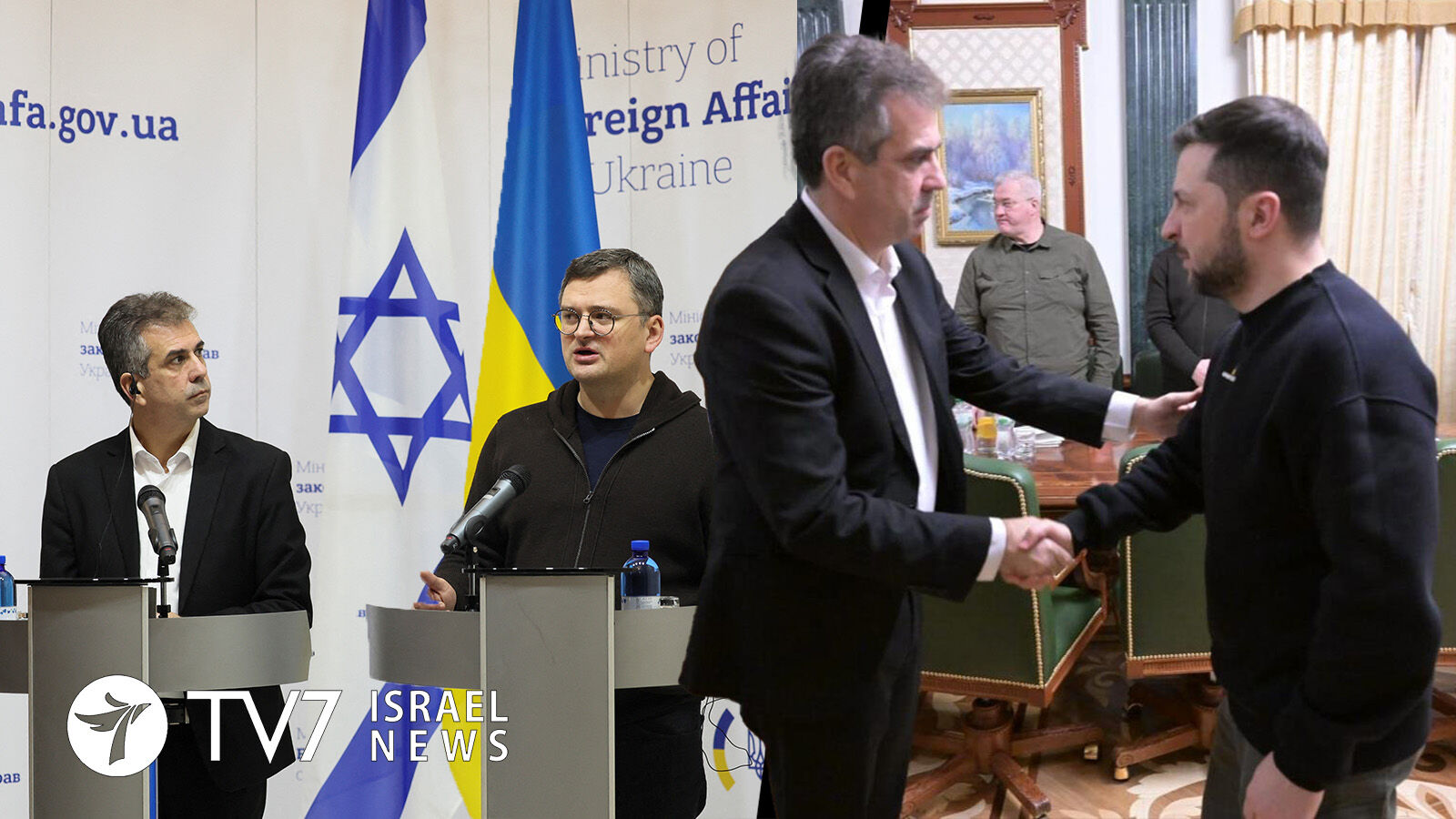Jerusalem’s top diplomat made the announcement during the first visit by an Israeli official to Kyiv since Russia’s invasion a year ago.
By Erin Viner
“I am proud to stand with Ukraine in the face of these challenging times,” stated Israeli Foreign Minister Eli Cohen.
Following a briefing with Ukrainian Foreign Minister Dmytro Kuleba, Cohen revealed that the Jewish State will support a Ukrainian peace initiative at the United Nations next week.
Without mentioning Russia or military aid, Cohen added, “I promised him that Israel will expand the aid we are providing and that we will be a party to rebuilding Ukraine after the war as well.”
Israel would help develop a smart air raid early warning system, he pledged, while also assisting the besieged nation secure up to $200 million for healthcare and infrastructure projects.
in a message posted on Twitter, Minister Cohen said he delivered the pledges during a meeting with Ukrainian President Volodymyr Zelenskyy. “I emphasized to him that Israel unequivocally supports Ukraine’s sovereignty and territorial integrity,” Cohen wrote.
The Israeli Foreign Minister highlighted that he and President Zelenskyy also agreed that “Iran’s terrorist activity in Ukraine deserves condemnation and practical steps by the international community in the strongest of terms.”
The European Union is preparing to sanction Iranian entities involved in the war, following the United States’ 3 February imposition of sanctions on Iranian drone maker Paravar Pars over the use of its unmanned aircraft to attack critical Ukrainian infrastructure.
Zelenskyy said the two discussed “deepening bilateral cooperation in various areas” and that he is grateful for Israel’s humanitarian aid. They discussed Israel’s participation in post-war reconstruction, he said in a Telegram post, adding, “Ukraine could use Israel’s experience in demining.”
The previous Israeli governments – under leadership of Premiers Naftali Bennett and Yair Lapid – condemned the Russian invasion, but limited assistance to Kyiv to humanitarian aid and protective gear.
Prime Minister Benjamin Netanyahu, who returned to power in December, has spoken about reviewing policy on the conflict, although he too, has stopped short of implementing any direct supply of arms. It was reported last month that the US diverted munitions kept in Israel to Ukraine for defense against Russia.
Israel has been wary of straining relations with the Kremlin, which is a powerbroker in neighboring Syria where Israel coordinates strikes against Iranian deployments. Jerusalem and Moscow maintain a defense coordination mechanism in the Arab Republic to prevent clashes between their militaries. Russian forces have been deployed to fight in the Civil War on behalf of the Bashar al-Assad regime, while Israel frequently launches operations against deployments by Iran and its regional proxies such as the Hezbollah terror group in Syria.
Soon after Moscow’s invasion of neighboring Ukraine late February, the Kremlin sought to reassure Israel that the bilateral security coordination would remain unaffected.
Jerusalem is also mindful of the welfare of the large Jewish community residing in Russia.
